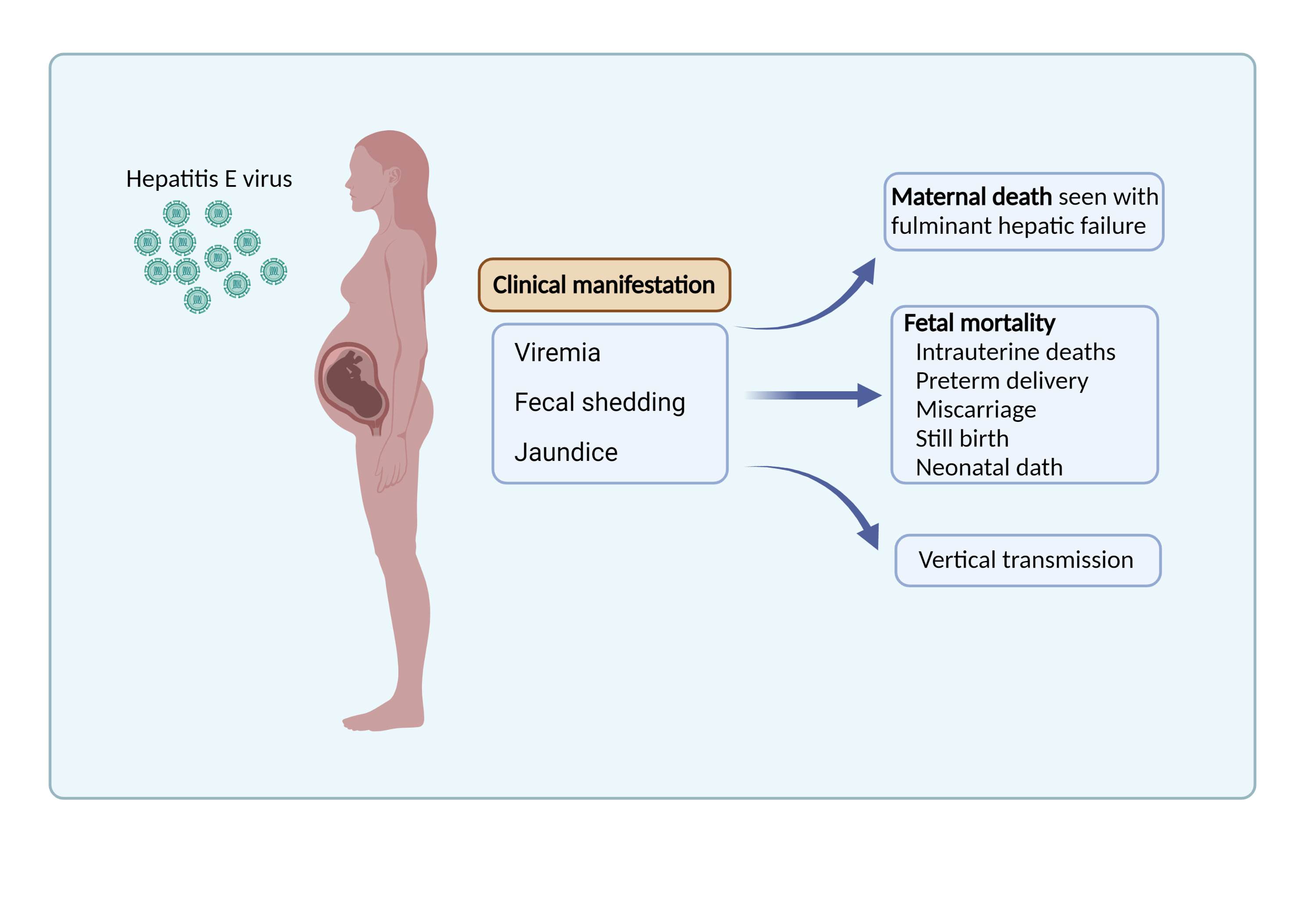Hepatitis E virus (HEV) infection is usually a self-limiting disease with an overall case-fatality rate of less than 1%; however in pregnant women mortality rate can increase up to 20-30%. The exact mechanism that drives this phenomenon is largely unknown.
Progesterone is an endogenous steroid and progestogen sex hormone involved in the menstrual cycle, pregnancy, and embryogenesis. In women, progesterone levels are relatively low during the preovulatory phase of the menstrual cycle, rise after ovulation, and are elevated during the luteal phase. If pregnancy occurs, human chorionic gonadotropin is released, maintaining the corpus luteum and allowing it to maintain levels of progesterone. Increased progesterone levels were reported in HEV infected pregnant women with fulminant hepatic failure, and progesterone plays a critical role in maintenance of pregnancy.
A study led by Dr. Harini Sooryanarain and Prof. Xiang-Jin Meng, from Virginia Polytechnic Institute and State University, USA, investigated how progesterone affects HEV replication and innate immune response. They used Huh7-S10-3 cells and cell-culture adapted genotype-3 HEV P6 to study the effect of progesterone on HEV replication. Their in vitro results showed that pre-treatment of cells with progesterone enhanced HEV replication, but did not affect HEV induced type-III interferon (IFN) response. Further mechanistic study showed that the SH3-domain containing progesterone receptor membrane complex 1/2 (PGRCM1/2) negatively regulated HEV-induced type-III IFN via ERK pathway. Knockdown of PGRMC1/2 led to decreased HEV replication, increased HEV-induced type-III IFN levels, and alteration in progesterone-induced ERK activation. They also observed that inhibition of ERK activation by a specific drug U0126 led to increased levels of HEV-induced type-III IFN during progesterone treatment.
These observations suggest that progesterone mediated enhancement of HEV replication could plausibly be via SH3-domain containing PGRMC1/2 but likely not through direct immunomodulation of HEV-induced interferon response in the liver cells. The results from this study have important implications in understanding the mechanism of HEV-associated severe diseases during pregnancy.
This study was published in mBio (2021 Jun 29;12(3):e0143421). Read the full research article https://journals.asm.org/doi/10.1128/mBio.01434-21

